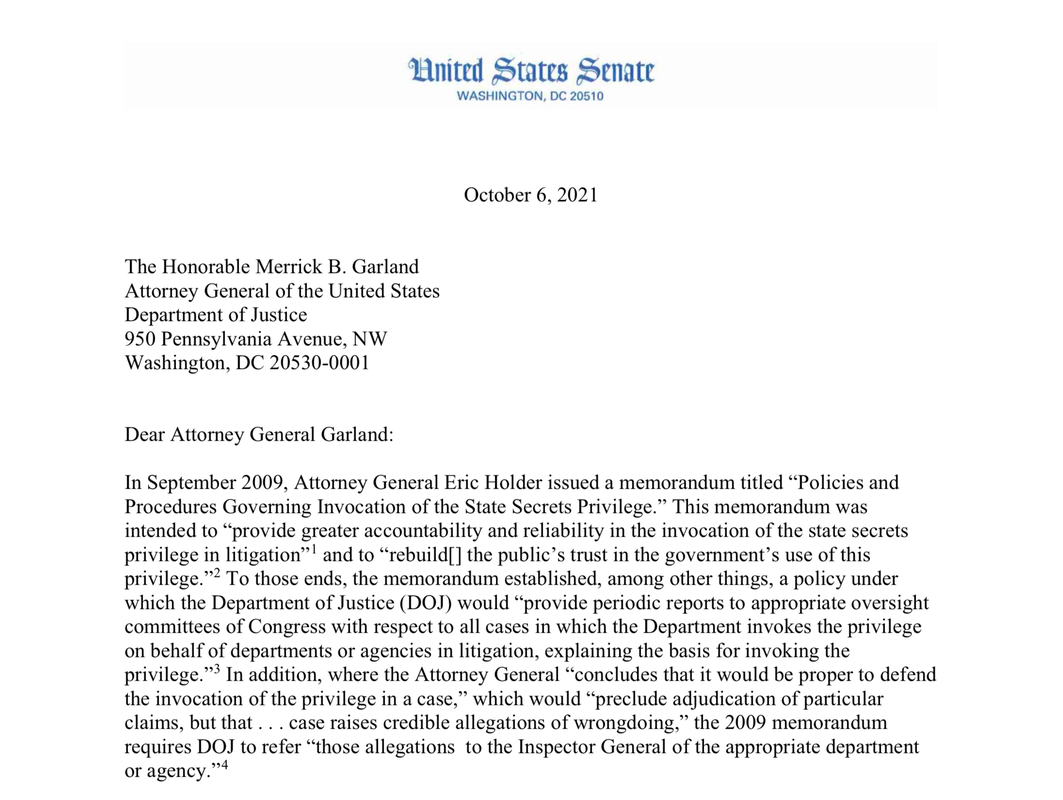|
The State Secrets privilege requires secret evidence related to national defense or foreign relations to be evaluated in camera by a judge in her or his chamber. As we have seen, in some instances the FBI and other government agencies have used the State Secrets privilege to short-circuit a defendant’s case by also asking for a jury trial – which cannot be allowed to hear the evidence.
These mutually exclusive requests – holding some evidence secret while invoking the Seventh Amendment right to a jury – creates the perfect Catch-22, a rule the government always wins. It is for abuses like this that the use of the State Secrets privilege is coming under increasing scrutiny. The U.S. Supreme Court is currently reviewing FBI v. Fazaga – a case involving FBI penetration and bugging of a mosque by an informant – in which the privilege played a significant role in trials before lower courts. Now four Democratic senators have written to Attorney General Merrick B. Garland asking the Department of Justice to adhere to promises of greater transparency by President Biden. In August, President Biden issued a media release publicly committing to “adhering to the rigorous guidance” set forth in a 12-year-old memorandum, “Policies and Procedures Governing Invocation of the State Secrets Privilege.” This memo was issued in September, 2009, by then-Attorney General Eric Holder to pledge that the Department of Justice would “provide periodic reports to appropriate oversight committees of Congress.” It also promised to refer “credible allegations of wrongdoing” hidden by the privilege to the department’s Inspector General. The letter, signed by Sens. Richard Blumenthal, Robert Menendez, Cory A. Booker and Kirsten Gillibrand, challenges Garland to live up to the president’s promise and adhere to the memorandum. It noted that the memo’s promise of “periodic” reviews is not defined, but “it should be plainly obvious that intervals – now more than six years since the last report on file was submitted – by which DOJ has provided these reports to Congress frustrates meaningful and effective congressional oversight.” Among the many requests the senators put to the attorney general are:
The senators demand written answers by Oct. 27. It will be interesting to see if DOJ responds by that date or remains as “periodic” as Halley’s Comet. Comments are closed.
|
Categories
All
|


 RSS Feed
RSS Feed